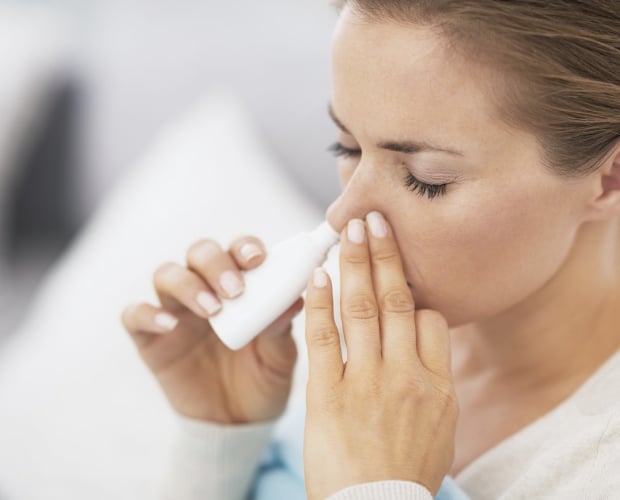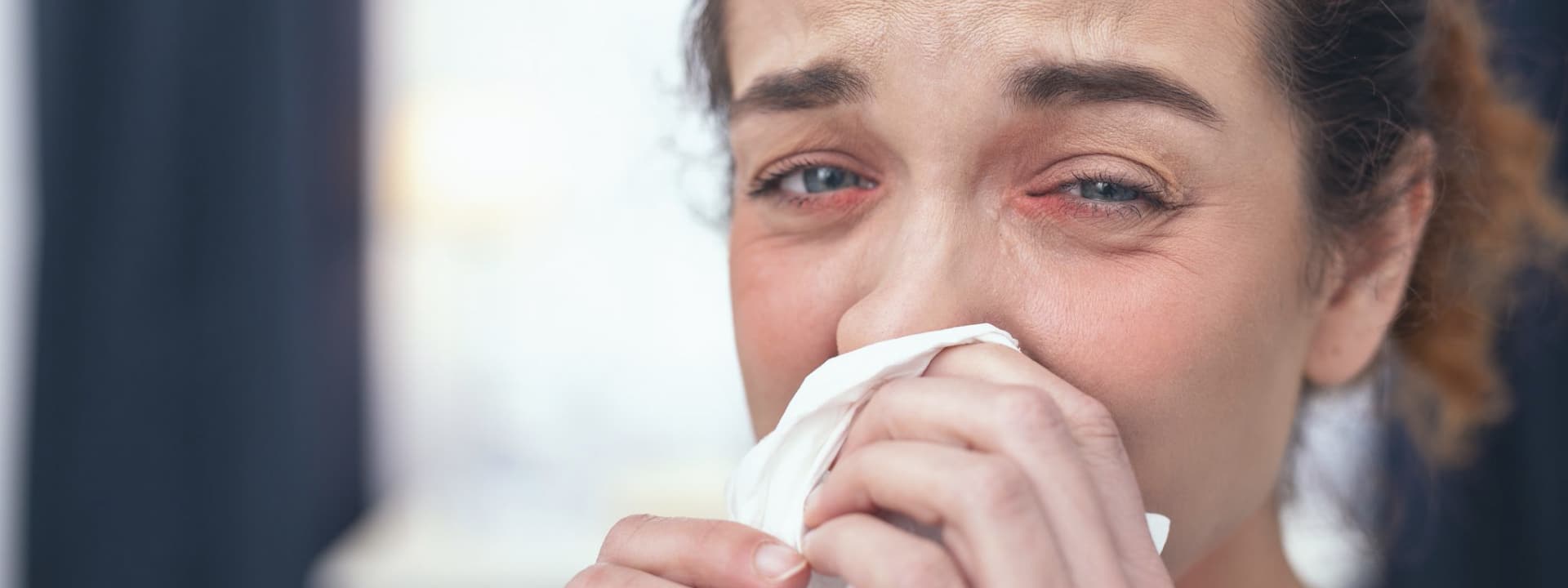Allergic rhinitis affects around one in five people in Britain, and typically causes symptoms similar to those of the common cold. The term allergic rhinitis refers to the inflammation of the nasal airways, and can be caused by allergens, for example pollen, skin and hair particles or dust. If you suffer from allergic rhinitis, you’ll probably experience symptoms such as a blocked or runny nose, sneezing and itching. You may also experience swelling around the eyes.
Who suffers from Allergic Rhinitis?
Some people are more sensitive to seasonal allergens such as pollen than others, and therefore only get allergic rhinitis for a few months at a time (when the pollen count is quite high). This is more commonly known as hay fever. However, others can suffer from allergic rhinitis all year round. In some cases the symptoms are mild and can be treated easily, but in others they can be a lot more severe and can interfere with everyday life, often causing sleep problems.


How does Allergic Rhinitis affect sleep quality?
If you have allergic rhinitis, you’re very likely to have difficulty sleeping or suffer from sleep disorders. Allergic rhinitis can contribute to snoring and breathing problems during sleep, such as sleep apnoea. This is because when you’re suffering from allergic rhinitis, your nasal passages are swollen and blocked, and this nasal congestion makes it more difficult to breathe easily whilst sleeping. Sleep disorders not only disrupt your sleep but can also have negative implications on your daily life, for example you may experience fatigue during the day as a result of missing out on a restful night’s sleep.
How is Allergic Rhinitis treated?
Treatment for allergic rhinitis depends on the severity of the symptoms. However, at the Sleeping Disorders Centre Mr Oko and Prof Ram Dhillon, will go through a number of assessments with you to determine the best possible treatment for your case. Treatments include:
- Antihistamines – medication that relieve symptoms of allergic rhinitis
- Corticosteroids – usually in the form of a spray or drops that help reduce nasal swelling
- Nasal irrigation – flushing the nasal cavity to flush out excess debris and mucus
- Nasal decongestants – sprays that help to clear a blocked nose
- Immunotherapy – treatment to make your immune system less sensitive to the allergen


Immunotherapy
If your allergic rhinitis symptoms are very severe, one option we offer is immunotherapy, also known as desensitisation.
The treatment involves gradually introducing more of the allergen into your body, enabling your immune system to become less sensitive to it. We will usually inject the allergen at weekly intervals, under the skin of your upper arm. The dose will be slightly increased at each interval.
Once we’ve reached a dose that is successful in reducing your allergic reaction, treatment will be continued for up to 3 years.
This treatment can also be carried out through the use of medication that contains an allergen, for example, pollen from grass. The medication will be in the form of a tablet, which you will be asked to place under your tongue.
